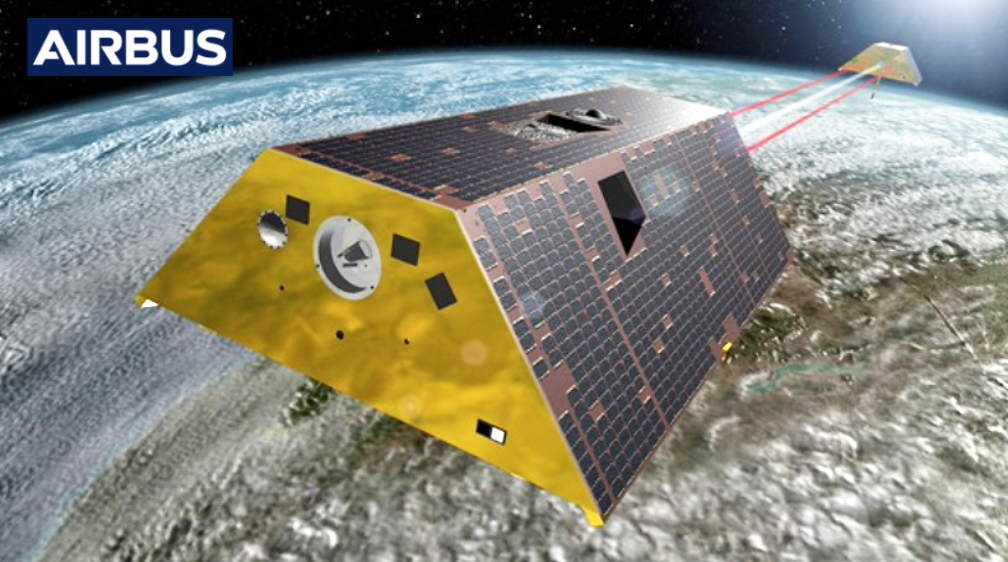
Airbus has been awarded a contract to design and build the GRACE-C twin spacecraft by NASA’s Jet Propulsion Laboratory JPL (Pasadena, California). This new mission of NASA and the German Space Agency at the German Aerospace Center (DLR) will strengthen the more than 20 year long partnership between the USA and Germany to ensure uninterrupted measurement of the Earth’s gravity field, which started in 2002 with GRACE and continues with GRACE Follow-On, launched in 2018.

During its five year nominal mission lifetime, the GRACE-C Mission (Gravity Recovery And Climate Experiment-Continuity) will continue the series of measurements observing how Earth’s groundwater, oceans, ice sheets, and land shift, month-to-month, by measuring changes in the planet’s gravity field.
GRACE-C consists of two identical satellites flying around 200 km apart at an orbit altitude of 500 km with an inclination of 89 degrees. Each satellite will measure approximately 3 x 2 x 1 meters and weigh around 600 kg. Launch is planned no earlier than late 2028 from the USA.
Like its predecessors, the GRACE-C mission is designed to precisely measure small distance changes between the satellites due to gravity variations, with an unprecedented precision down to the micron. As the pair of satellites circle the Earth, areas of slightly stronger gravity (greater mass concentration) will affect the spacecraft’s positions and hence the distance between them. The extremely precise microwave ranging system will detect these changes and enable the mapping of Earth’s gravity field with unmatched accuracy.
Over the months and years, the comparison of these gravity maps, or the evolution of mass concentrations, will enable scientists to assess the global water balance, including groundwater tables and ice sheets, and the influence of climate change. It will also provide insights into deep and surface currents in oceans and ocean height contributors.
GRACE-C is a rebuild of the two GRACE Follow-On satellites with upgraded avionics based on state-of-the-art technology and the joint U.S.-German Laser Ranging Interferometer (LRI), already flown on GRACE Follow-On as an experimental payload, now being the main ranging instrument.
The mission is based on a NASA/DLR interagency partnership: German contributions are funded by the Federal German Ministry of Economic Affairs and Climate Action as well as the Federal and Ministry of Education and Research. The optical bench of the LRI instrument is built by SpaceTech GmbH in close cooperation with the Max Planck Institute Gravitational Science (Albert Einstein Institute).
Airbus Defence and Space in Friedrichshafen will design, build and deliver the satellites to the launch site, including Launch and Early Orbit Phase (LEOP) support for NASA/JPL. The mission will be operated by the German Space Operations Center (GSOC) of DLR.
Alain Fauré, Head of Space Systems at Airbus, said, “It is amazing to think that, without looking down at Earth, two satellites more than 200 km away from each other, can tell us how quickly our ice sheets are melting. In environmental monitoring, continuity is key. The valuable data provided by the previous GRACE missions is testament to their success and it is great news that Airbus continues to be part of this international mission providing the tools to measure how our climate is evolving.”
